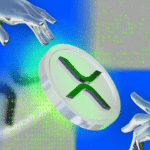Bitcoin Core developer Jimmy Song has voiced strong criticism of the Taproot upgrade, highlighting concerns that it has inadvertently increased what he describes as the “social attack surface.” This vulnerability, he argues, has facilitated spam-like activities within the Bitcoin network, exemplified by the proliferation of Ordinals and BRC-20 tokens.
During a recent discussion, Song contended that the Taproot upgrade has not lived up to its promises, particularly regarding enhanced privacy and usability in multi-signature scenarios. He expressed that developers failed to account for the unintended consequences of enabling non-financial transactions at scale, stating, “What they ignore is that Taproot had significant trolling value as the upgrade that Bitcoiners were placing their hopes in.” He emphasized that the increase in the social attack surface was not adequately considered in the upgrade’s design.
Introduced in November 2021, Taproot aimed to enhance Bitcoin’s privacy and efficiency through the implementation of Schnorr signatures and Script Path Spend. However, Song argues that the upgrade has complicated the user experience, especially with respect to multi-signature transactions. He remarked, “Bad user experience basically made it a non-starter,” reflecting a significant sentiment within parts of the Bitcoin community.
The division regarding Bitcoin’s purpose is growing starker, with influential developers taking sides. Figures like Adam Back, Dennis Porter, and Luke Dashjr advocate for Bitcoin’s use strictly as a peer-to-peer electronic cash system, while proponents of Ordinals and Runes argue for the inclusion of all valid transactions, regardless of their financial nature. This ideological split intensified when Bitcoin Core developers voted to eliminate the 80-byte limit on the OP_RETURN opcode, allowing larger non-financial payloads such as images and videos. While some welcomed this change, others expressed concern over the potential risks to the network’s integrity, prompting certain users to transition to Bitcoin Knots, a competing implementation that has seen significant growth, now accounting for nearly 28% of the network.
Despite his criticism, Song has not dismissed Taproot outright. He suggested that future applications like BitVM and Ark could still redeem the upgrade and justify its implementation costs. Meanwhile, a voice within the Ordinals ecosystem, identified as Leonidas, claimed that these transactions have generated over $500 million in fees, which he argues bolster Bitcoin’s long-term security as block subsidies decline. However, metrics on transaction fees have shown significant variability, raising questions about the accuracy of these claims.
As the discourse continues, Leonidas has threatened to fund a fork of Bitcoin Core if there is an attempt to censor Ordinals or Runes transactions in the upcoming v30 upgrade. This open letter, supported by miners controlling over 50% of the network’s hash rate, underscores the mounting tensions regarding the future functionality of Bitcoin as the network prepares for significant expansions in on-chain data capacity. The v30 upgrade, slated for October 2025, aims to remove the OP_RETURN limit and facilitate transactions of up to 4MB, which critics have derisively referred to as “JPEG spam.”
Adam Back of Blockstream has cautioned that these data-heavy transactions could displace legitimate ones, while Leonidas maintains that Ordinals have materially contributed to Bitcoin’s fee revenue. As these conflicting perspectives vie for dominance, the alternative Bitcoin Knots implementation continues to gain traction, controlling an increasing percentage of the network amid these transformative debates.







